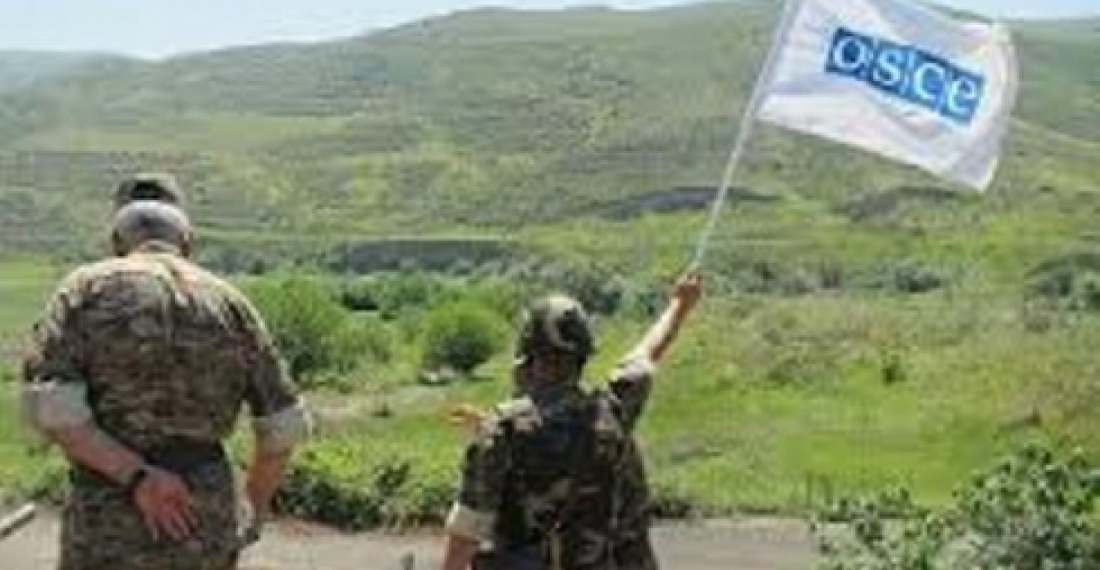A statement issued by the co-Chair of the OSCE Minsk Process following the shooting down of an Armenian helicopter last week has caused controversy.
On Wednesday, the following statment was issued simultaneously in Paris, Moscow and Washington:
"The Co-Chairs of the OSCE Minsk Group (Ambassadors Igor Popov of the Russian Federation, James Warlick of the United States of America, and Pierre Andrieu of France) remain deeply concerned that there has been no humanitarian access to the crash site of the military helicopter downed by Azerbaijani forces on November 12. The wreckage of the helicopter lies in a heavily mined area of neutral territory on the Line of Contact.
We call on the sides to cease firing in the vicinity of the crash site and facilitate the demining of the area surrounding the site. In the spirit of the Astrakhan statement of October 2010 between the Presidents of Armenia, Azerbaijan, and Russia, the Co-Chairs urge Azerbaijan to permit the recovery of the bodies of the victims, and Armenia to cooperate fully with all efforts to resolve this humanitarian situation. We note the presence of the Personal Representative of the OSCE Chairman-in-Office Ambassador Andrzej Kasprzyk and his team in the region, and encourage the sides to use his good offices to allow access.
We reaffirm our November 12 statement, reminding the sides of their responsibilities to respect the ceasefire and honor the commitments they made in Sochi, Newport, and Paris to find a peaceful resolution to the conflict."
The statement immediately created controversy because of the use of the words "neutral territory". The term neutral zone or neutral territory is often used to describe a territory between two countries where the border had not or could not be delineated. A territory separating two sides in a conflict situation is more often referred to as "no man's land". The American co-Chair of the OSCE Minsk Process said on his twitter account this morning, "To be clear, there is no 'neutral' territory in the Nagorno-#Karabkh conflict. But there is a "no man's land" separating military forces."
Commonspace.eu political editor said in a comment: "It is not clear if this was a linguistic lapsus, or if the co-Chairmen of the Minsk Process were trying to introduce some new concept. Terminology in the discourse around the Nagorno-Karabakh conflict is highly controversial, and the sides in the conflict spend a lot of their time and energy arguing about these terms, which conveniently saves them from having to talk about more substantial issues. On this occasion it is clear that the wrong term was used in the OSCE statement. But what is more important is the core issue in the statement of the co-chair, namely the need for humanitarian access to the site of last week's helicopter crash in order to retrieve the bodies of those who were killed.
With the two sides spinning very different stories as to what actually happened, it is also important to have a swift and credible investigation in the incident".
source: commonspace.eu with osce.org and other media outlets.
photo An OSCE monitoring team on the line of contact between Armenian and Azerbaijaniforces in the Nagorno-Karabakh conflict zone (archive picture).







